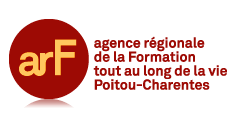Avis du Ceser pour les initiatives d'excellence des PRES de Lyon et de Grenoble
 Rapport "Initiatives d'excellence des PRES de Lyon et de Grenoble". Rapporteur: M. François GUILLEMIN, Président de la commission n° 6 « Enseignement supérieur et Recherche », Contribution n°2011-10 du 12 Juillet 2011.
Rapport "Initiatives d'excellence des PRES de Lyon et de Grenoble". Rapporteur: M. François GUILLEMIN, Président de la commission n° 6 « Enseignement supérieur et Recherche », Contribution n°2011-10 du 12 Juillet 2011. 1. Pourquoi une contribution du CESER?
Suite à l’audition des présidents des PRES de Lyon et Grenoble par la section prospective le 23 juin 2010, le CESER a souhaité se saisir de ces dossiers pour que la société civile organisée porte son regard sur les évolutions en cours. C’est pourquoi il lui est apparu souhaitable de s’impliquer notamment dans la candidature des PRES de Lyon et de Grenoble aux appels à projets « investissements d’excellence » lancés par le gouvernement.
L’appel à projets « initiatives d’excellence » des investissements d’avenir (ou IDEX) a pour objectif de faire émerger au niveau national 5 à 10 pôles pluridisciplinaires d’excellence d’enseignement supérieur et de recherche, de rang mondial. Elle s’inscrit dans la dynamique de la réforme de l’enseignement supérieur et de recherche engagée par l’autonomie des universités, qui vise à décloisonner les universités, les écoles, et les organismes de recherche, et à favoriser les partenariats avec le monde économique...
2. Présentation synthétique des deux projets IDEX
La région Rhône Alpes possède la particularité de disposer de deux pôles universitaires majeurs à l’échelon national, voire européen: Lyon/St Etienne et Grenoble/pays de Savoie. Elle se distingue aussi par sa concentration de pôles de compétitivité, de clusters, et d’entreprises innovantes. Chaque projet IDEX est construit en fonction des spécificités historiques, sociologiques, politiques et économiques de chacun des territoires...
3. Une opportunité pour la région
3.1. De grandes ambitions
Les investissements d’avenir et leurs différentes déclinaisons sont une opportunité de développement pour l’enseignement supérieur et la recherche en région Rhône-Alpes. IMAGINE et GUI+ demandent la même dotation en capital : 1.2 milliard d’euros. Ces investissements importants doivent produire un effet levier sur le rayonnement universitaire régional, mais aussi favoriser le développement économique et social. Les résultats des appels à projets EQUIPEX et LABEX, ainsi que la présélection des dossiers IDEX de Lyon et Grenoble sont très prometteurs. Ils confirment la place de la région Rhône-Alpes comme deuxième pôle d’enseignement supérieur et de recherche après l’Ile-de-France.
Ces appels à projets devraient avoir des retombées très positives pour le milieu universitaire car ils ont permis de créer de nouvelles synergies autour de projets collaboratifs. Néanmoins, il faudra trouver des réponses, au niveau des équipes notamment, aux problématiques engendrées par la multiplication de ces appels d'offre.
Il s’agit maintenant de capitaliser sur la dynamique des projets présentés, y compris ceux qui n’ont pas été sélectionnés et d’y impliquer largement les personnels concernés. Les dossiers IDEX permettront d’assurer la diffusion de l’excellence concentrée dans les « briques élémentaires » que sont les EQUIPEX, LABEX, IRT, et IEED...
Conclusion
Les IDEX ont une grande ambition et sont un défi à relever pour les PRES de Grenoble et de Lyon. Il s’agit de faire des choix difficiles et courageux pour l’avenir de l’enseignement supérieur et de la recherche dans la région Rhône Alpes.
Ces choix sont tout d’abord thématiques : les projets centrés sur les domaines les plus stratégiques pourront bénéficier et être diffusés à l’ensemble des disciplines et des territoires. Ces choix concernent aussi la gouvernance de l’enseignement supérieur et de la recherche: l’ambition imposée par les IDEX est de créer de nouvelles gouvernances qui sont la préfiguration des systèmes universitaires de demain.
Il est aussi essentiel de veiller au maintien d’une cohérence entre les sciences et la société civile pour que ces projets soient partagés par tous. Ces projets sont essentiels pour notre région et plus globalement, pour favoriser une meilleure diffusion, application, et relation réciproque de la recherche et de l’innovation vers les entreprises et l’ensemble de la société. L’amélioration de ces liens formation-recherche-développement est un atout capital pour apporter des réponses aux grands enjeux économiques et sociétaux.
Télécharger le Rapport "Initiatives d'excellence des PRES de Lyon et de Grenoble".
Voir aussi l'Avis du CESER pour le développement de l'enseignement supérieur et de la recherche en Midi-Pyrénées et Poitou-Charente - avis du CESER sur le schéma régional de l’enseignement supérieur.
 Raport " Inicjatywy doskonałości w pobliżu Lyon i Grenoble sprawozdawcę. ": Pan François GUILLEMIN, Przewodniczący 6 Komitet" Szkolnictwa Wyższego i Badań Naukowych ", Contribution Nr 2011-10 z 12 lipca 2011 roku. Pobierz raport "Inicjatywy doskonałości w pobliżu Lyon i Grenoble."
Raport " Inicjatywy doskonałości w pobliżu Lyon i Grenoble sprawozdawcę. ": Pan François GUILLEMIN, Przewodniczący 6 Komitet" Szkolnictwa Wyższego i Badań Naukowych ", Contribution Nr 2011-10 z 12 lipca 2011 roku. Pobierz raport "Inicjatywy doskonałości w pobliżu Lyon i Grenoble." Zobacz także CESER opinii dla rozwoju szkolnictwa wyższego i badań w regionie Midi-Pyrenees i Poitou-Charente - opinia CESER regionalnej strukturze szkolnictwa wyższego. Więcej...








/https%3A%2F%2Fprofilepics.canalblog.com%2Fprofilepics%2F1%2F0%2F1076071.jpg)